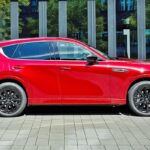
Hyundai Motor Group has announced a significant investment of $21 billion in the United States over the next four years. It aims to expand its foothold in the North American market and bolster its competitiveness in future industries. The investments will span from 2024 to 2028 and will focus on key sectors, including automotive, parts, logistics, steel, future industries, and energy.
A significant part of this investment includes expanding Hyundai Meta Plant America (HMGMA) production capacity in Georgia from 300,000 to 500,000 vehicles annually. Additionally, Hyundai plans to establish an electric arc furnace-based steel mill in Louisiana with an annual capacity of 2.7 million tons. Hyundai is set to expand its presence in future industries such as robotics, artificial intelligence, and autonomous driving through strategic partnerships with U.S. companies.
Strengthening top-tier presence in the U.S. and expanding Korea-U.S. economic cooperation
This massive investment aligns with the Biden administration’s push to revitalize American manufacturing while positioning Hyundai to capitalize on global business opportunities. It is expected to foster economic cooperation between South Korea and the United States through synergies across various industries.
Hyundai will execute its investment strategy across three main categories: automotive, parts/logistics/steel, and future industries/energy.
Automotive sector: Ramping up U.S. production capacity to 1.2 million vehicles
A total of $8.6 billion will be invested in the automotive sector. Currently, Hyundai’s production system in the U.S. includes its Alabama plant, which produces 360,000 vehicles annually; Kia’s Georgia plant, which produces 340,000 vehicles; and the soon-to-be-completed 300,000 vehicles from HMGMA, which totals 1 million vehicles per year. With the planned 200,000-unit expansion at HMGMA and upgrades to existing facilities, Hyundai aims to achieve a production capacity of 1.2 million vehicles.
Parts, logistics, and steel sector: Bolstering the supply chain with a new electric arc furnace steel mill
This sector will receive $6.1 billion in investments. Alongside the HMGeneral MotorsA expansion, parts suppliers will enhance their facilities, and local procurement of key electric vehicle (EV) components like battery packs will increase. Louisiana’s new electric arc furnace steel mill is expected to ensure a stable supply of high-quality automotive steel and improve resilience against external risks such as tariffs.
Future industries and energy sector: Commercializing cutting-edge technologies
A total of $6.3 billion will be invested in future industries and energy. Hyundai aims to accelerate the commercialization of key technologies in the U.S., including autonomous driving, robotics, AI, and urban air mobility (AAM). The group’s U.S. subsidiaries—including Boston Dynamics, Supernal, and Motional, will spearhead efforts to bring these technologies to market. The company will also collaborate with innovative U.S. companies to develop software-defined vehicles (SDVs) and autonomous taxi services.
Energy sector: Expanding nuclear, renewable energy, and EV charging infrastructure
Hyundai’s investments in the energy sector will focus on nuclear and renewable energy projects. Hyundai Construction plans to break ground on a small modular reactor (SMR) in Michigan by year-end, while Hyundai Engineering is preparing for the commercial operation of a solar power plant in Texas by 2027. To expand EV charging infrastructure, the company will actively install charging stations through IONNA, an ultra-fast charging network consortium formed with other U.S. automakers.
Record-breaking domestic investment of 24.3 trillion KRW ($18.23 billion)
Parallel to its U.S. investments, Hyundai Motor Group is making unprecedented domestic investments. This year, it will invest a record 24.3 trillion KRW ($18.23 billion) in South Korea, a 19% increase from the previous year. The investment will be allocated to research and development as well as regular and strategic investments.
R&D efforts will concentrate on electrification, SDVs, hydrogen technology, and core technology development. Regular investments will fund the modernization of production facilities and expansion of customer experience centers, while strategic investments will focus on securing competitiveness in future core technologies such as autonomous driving and AI.
Ramping up domestic EV production with dedicated facilities
Hyundai is accelerating the establishment of dedicated EV facilities in South Korea. In the second half of this year, Kia will complete its EV-dedicated EVO Plant in Hwaseong, producing customized purpose-built vehicle EVs. Additionally, Hyundai’s EV-dedicated plant, under construction in Ulsan, will begin production in the first half of 2026, starting with large electric SUVs before expanding to other models.























